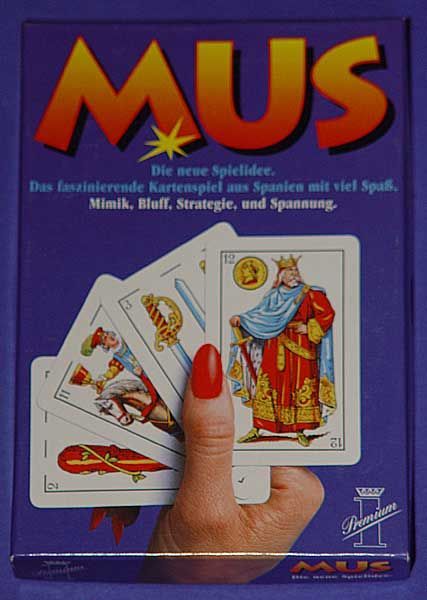Mus (1745) Board Game
Mus is a traditional Spanish card game that originated in the Basque Country in the 18th century. It is a popular game among friends and family in Spain and Latin America, where players form teams and engage in betting and bluffing to outsmart their opponents.
Game Components of Mus
How To Setup Mus
To set up Mus, the dealer is selected randomly, often by dealing one card to each player and choosing the highest card. The dealer shuffles the deck, passes it to the player on their left to cut, and then deals four cards to each player one by one, starting from their right. The player to the right of the dealer, known as *esku*, begins the game. Players can choose to discard and replace cards by announcing “mus” until someone decides to stop the discard phase by saying “mintza”.
Gameplay Mechanics and Game Objective
Player Experience
Mus is a game that demands strategy, bluffing, and a bit of luck. Players must communicate subtly with their partners, often using pre-set signals or facial expressions to convey information without revealing their cards. The game’s verbal nature makes it challenging to learn solely by observation, but once mastered, it provides a rich and engaging experience. The dynamic of bidding and counterbidding adds a layer of psychological play, making each game unique and exciting.
Pros
Cons
Personal Thoughts on Mus
Mus is a game tailored for those who enjoy strategic card games and are willing to invest time in learning its intricate rules. It is ideal for players who appreciate the finesse of bluffing and the camaraderie of team play. While it may not be the easiest game to pick up, its depth and complexity make it highly rewarding for dedicated players. Mus is particularly suited for enthusiasts of card games and those interested in exploring the rich cultural heritage of the Basque community.
We are supported by our audience. When you purchase through links on our site, we may earn an affiliate commission, at no extra cost for you. Learn more.

